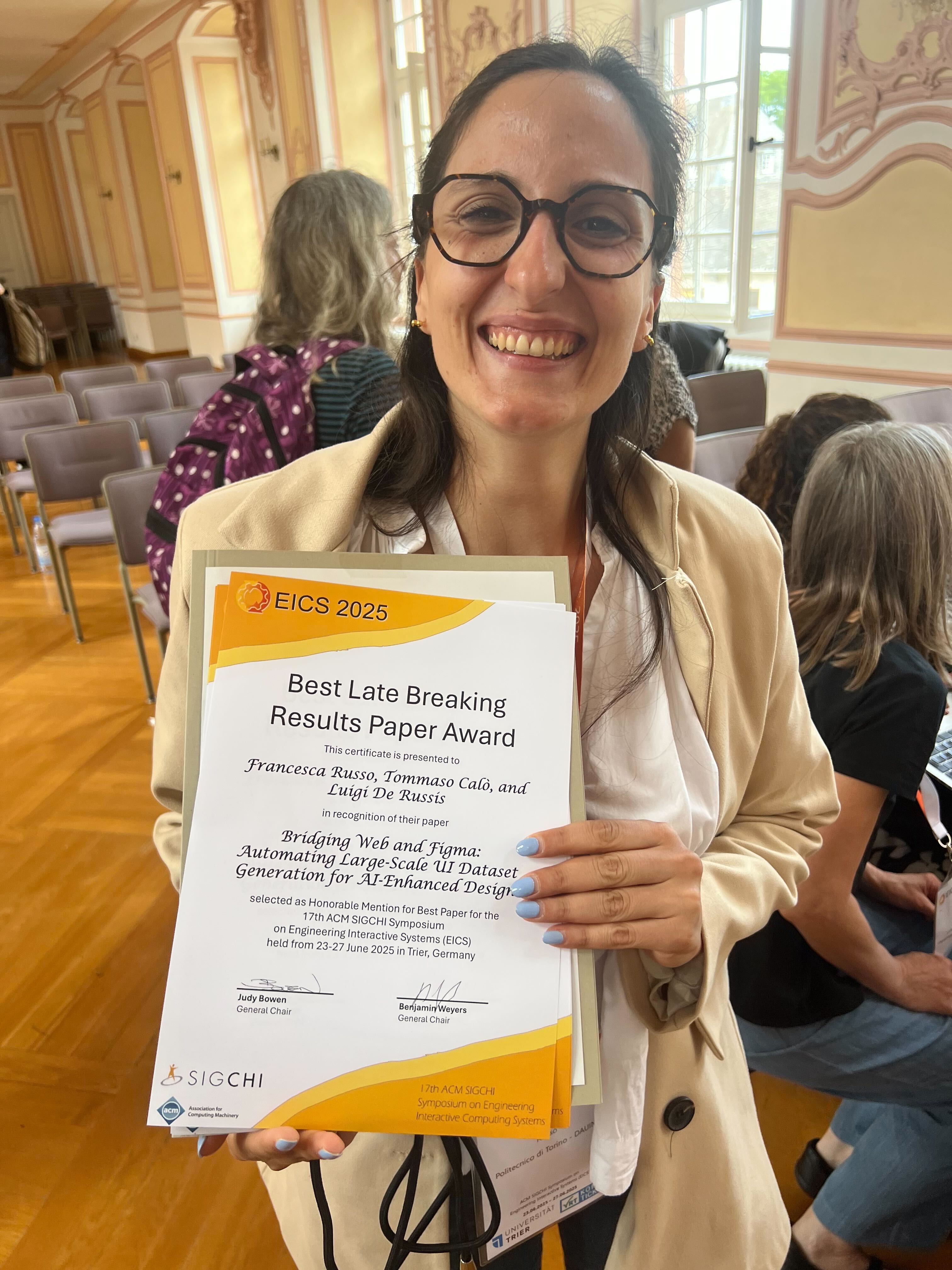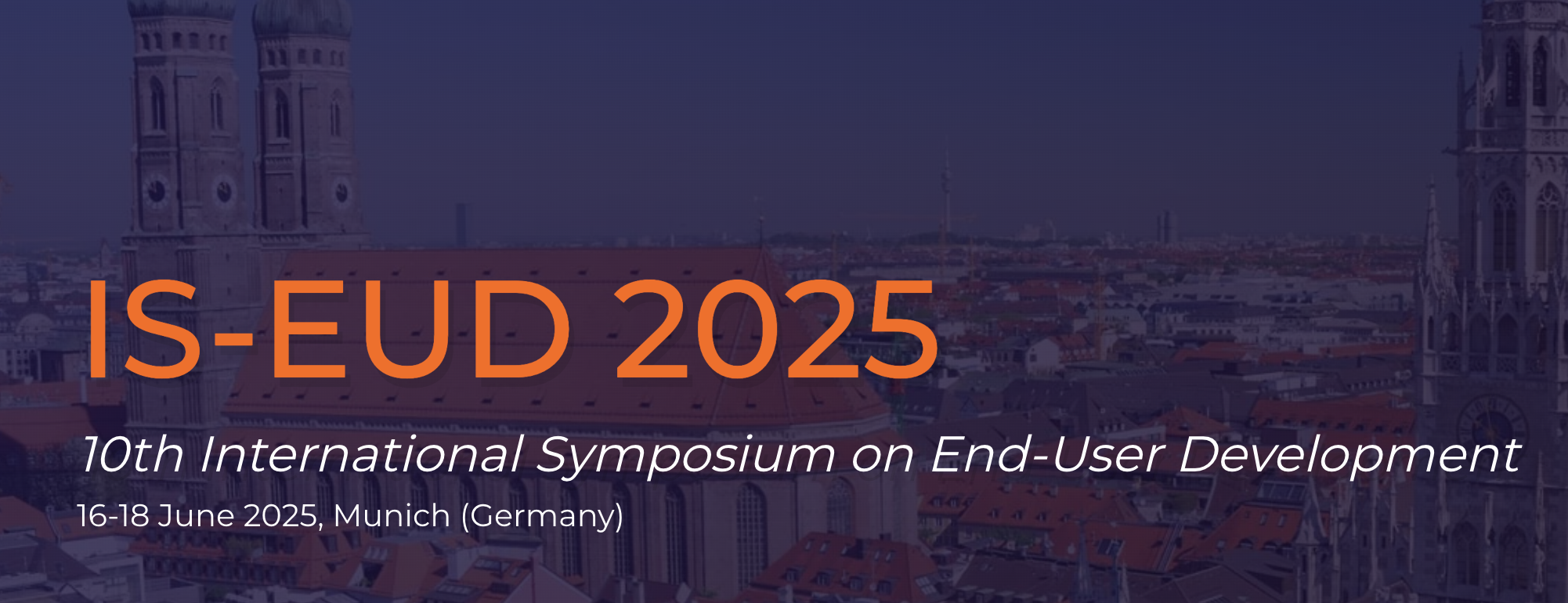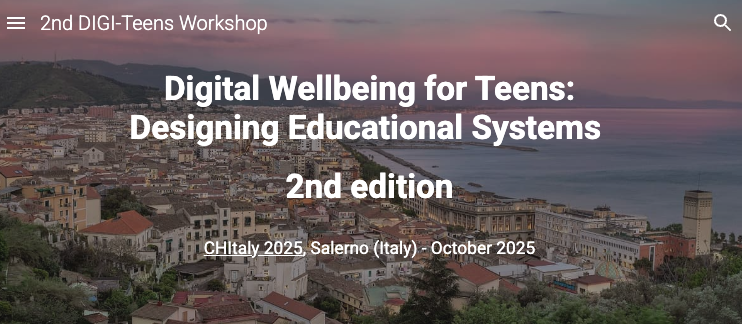Best Late Breaking Results Award at EICS 2025
In June 2025, Francesca Russo received the Best Late Breaking Results Award at the 17th ACM SIGCHI Symposium on Engineering Interactive Computing Systems (EICS 2025)!

In June 2025, Francesca Russo received the Best Late Breaking Results Award at the 17th ACM SIGCHI Symposium on Engineering Interactive Computing Systems (EICS 2025)!

From June 16 to June 20, 2025, Francesca will attend the 9th Summer School on Computational Interaction 2025 (CIX 2025) in Paris, France.
If you’re around during the summer school, don’t hesitate to say hi, always happy to connect and chat! 😊

From June 23 to June 27, 2025, the e-Lite group will attend the 17th ACM SIGCHI Symposium on Engineering Interactive Computing Systems (EICS 2025) in Trier, Germany.
Francesca and Tommaso will attend the conference in person to showcase their latest work on enhancing the workflow for UI designers and developers using AI. Tommaso will present a paper introducing new datasets to train more capable AI models that can automatically generate code from a visual concept. Francesca will present a late-breaking result that introduces a method to translate web data into Figma-compatible designs, allowing the development of AI-powered assistants that integrate directly into designers' creative workflows.
If you see any of us, feel free to say hello: we're always happy to chat! 😊

The e-Lite group will be represented at the 10th International Symposium on End-User Development (IS-EUD 2025), taking place from June 16 to 18 in Munich, Germany.
Alberto and Tommaso will attend the conference in person to present two full papers on digital wellbeing and generative AI for design. Our contributions explore how end-user development can empower people to shape their own digital experiences—whether by creating personalized self-control tools or by collaborating with AI in creative workflows.
If you're around Munich for the conference, come find us—we’d love to chat!

The 2nd edition of the Digital Wellbeing for Teens - Designing Educational Systems (DIGI-Teens) workshop to be held in October 2025 at Salerno, Italy is currently accepting contributions!
DIGI-Teens is a CHItaly 2025 workshop that aims to establish a venue for the academic and industrial communities to discuss ongoing research and ideas at the intersection of digital wellbeing and education, aiming to promote the development of strategies and tools to "teach" users – particularly children and teenagers – to use technology more meaningfully and consciously.

From April 26 to May 1, 2025, the e-Lite group will attend the ACM CHI conference on Human Factors in Computing Systems in Yokohama, Japan.
Luigi, Alberto, Tommaso, Luca, and Rob will be there in person. If you see any of us, feel free to say hello: we're always happy to chat! 😊
The team will present a full paper on scientific writing with AI, along with two Late-Breaking Works (LBWs) on digital wellbeing.

We are excited to announce that our latest research, The Digital Attention Heuristics: Supporting the User's Attention by Design, has been published in the prestigious ACM Transactions on Computer-Human Interaction (TOCHI). The research, led by Alberto Monge Roffarello and Luigi De Russis from Politecnico di Torino, in collaboration with Kai Lukoff from Santa Clara University, introduces a set of eight design heuristics aimed at preserving user attention and fostering digital wellbeing.
The paper addresses the growing concern around "attention-capture" designs employed by tech companies, which often exploit users' psychological vulnerabilities to maximize engagement. Examples of these attention-capture designs include the infinitely scrollable newsfeed of Instagram or the autoplay of the next video on YouTube. Unlike traditional digital wellbeing interventions that place the burden of digital self-control on users, this research shifts the focus to designers, offering actionable heuristics to create interfaces that respect users' attention and time by default.
We are thrilled to announce the publication of our latest research, "Supporting Teachers, Engaging Students: A Collaborative Model for K-12 Computing Education," in the Entertainment Computing journal.
The work shares our experience with the Batti il 5! national project, which aimed to strengthen computing skills in primary schools in the Mirafiori Sud district of Turin. In the paper, in particular, we address key challenges in integrating Computational Thinking (CT) into primary school curricula, such as teacher training and curriculum development. Through the design and evaluation of an introductory coding course for 4th-grade students—where children were guided to create a simple Scratch video game like the one shown in the figure—we explored how project-based learning and a collaborative approach involving experts, teachers, and high-school tutors can foster engaging and inclusive learning experiences.

On March 24-27, 2025, the e-Lite group will attend (in person) the 30th International Conference on Intelligent User Interfaces (IUI 2025) in Cagliari, Italy.
Tommaso Calò will present the paper "DeepFlow: A Flow-Based Visual Programming Tool for Deep Learning Development" on Thursday, March 27 during the Democratisation of AI session at 10:05 AM.

Il 5 marzo 2025 partirà la seconda edizione del corso Critical Making, rivolto ai docenti di scuola secondaria superiore nell'ambito del progetto europeo Erasmus+ "Critical Making", che ha come obiettivo combattere la disinformazione in ambito scientifico attraverso la progettazione didattica e l'integrazione delle tecnologie.